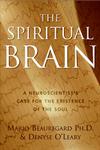My step dad was a great storyteller. In one of the last conversations I had with him, he wanted to talk about Christmas. But first, he had to lie down. His body was riddled with cancer. His strength was gone and he needed to rest. He closed his eyes and begin to reminisce about his childhood. He loved Christmas. He told me how his dad would buy a tree and set it up in their living room a week before Christmas. You could smell the fresh cut pine throughout the house. His mother would wrap up the presents and put them under the tree. He recalled how he and his brother would sneak in to inspect and shake the presents. They would try to imagine what was inside. Maybe it was some socks or a new coat. Or better yet, maybe it was that new toy you always wanted! It could be anything. The colorful paper and neat bows only added to the mystery and intrigue. He couldn’t wait for Christmas morning! The days and hours would stretch on for what seemed like eternity, but then Christmas Eve would finally arrive! They could barely sleep. At first light on Christmas morning, they would rush to the tree and tear open their treasures. It was magnificent!
As he lay in his bed, struggling with some pain, a broad smile formed across his face. His eyes opened. They were beaming with a misty, joyous radiance. He looked directly at me. “Jason, I feel like Christmas is coming. Eternity is wrapped up in a beautiful package waiting for me under the tree. I can’t wait to open it. It’s like I’m holding it right now and wondering what’s inside. I keep shaking it and wondering how wonderful it will be. What is on the other side of this mortal life? What will heaven be like? Christmas morning is coming for me and I’m ready to open it.”
Not many days later, my dad opened that present. He breathed out his last terrestrial breath and drank in the brilliant glory of eternity. While his life was ending here on earth, his joy never did. With a tearful smile and a heavy heart, I sent my last wish to him as he departed, “Merry Christmas, Dad.”
I recognize this is a heavy and personal story to start off the new year, but I think it is an important one. For me, it is profoundly grounding. There are controllable and uncontrollable events on our horizon. What matters and what is in our control is how we prepare and respond to those. How we look at things shapes our destiny. It can limit us or propel us forward. Wrapped up under the tree are packages with our names on them. What will they be? What will we find inside? How will we respond? What new adventure awaits? What will we discover?
As the new year is born, we don’t know where it will take us. We will face new experiences and say farewell to others. New memories will be made and old ones will visit us. Like the stars in the heavens, they will illuminate our journey, orient us and encourage us. We will embrace the unknown and keep going. Every encounter, precious. Every person, infinitely valuable. Every day, a gift.
The future is before us, full of potential, new adventures and new memories to enjoy. Like a present under the tree, it could be anything. It’s time to start unwrapping!
Happy New Year!






